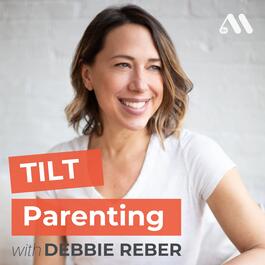
TPP 429: Dr. Liz Angoff on Best Practices for Talking with Kids About Diagnoses
Picture this. You’re sitting in the neuropsych’s office after you just got your kid’s diagnosis. You’re relieved to have some information on how to help them but have no clue how to explain their neurodivergence to them. Do you talk about the science? Do you wait until they are a certain age where they might understand more about their brains? Or maybe you think about waiting for them to start asking the questions. If you can relate, you’re not alone in wondering what the best way to have this conversation is. And the reality is, the how and when does matter. So for today’s show, I’m bringing on Dr. Liz Angoff, a Licensed Educational Psychologist who specializes in helping families reframe assessments and diagnoses into empowering narratives that celebrate a child’s unique brain. Liz has spent years working with children and families to make learning differences easier to understand. She’s the author of the Brain Building Books, a resource designed to help kids see their neurodivergence as a strength rather than a limitation. In our conversation, Liz shares why early and open discussions about neurodiversity are so important, how parents can guide their children through assessments in a way that fosters trust, and why shifting from a deficit-based model to a discovery-based approach can be transformative for the whole family. We also explore how different kids process this information in their own ways—some may embrace it, while others, especially teenagers, might resist labels altogether. She also provides thoughtful strategies to meet kids where they are and help them feel seen and supported. If you’ve ever struggled with how to talk to your child about their neurodivergence, this episode is full of practical insights and reassurance. About Dr. Liz Angoff Liz Angoff, Ph.D., is a Licensed Educational Psychologist with a Diplomate in School Neuropsychology, providing assessment and consultation services to children and their families in the Bay Area, CA. She is the author of the Brain Building Books, tools for engaging children in understanding their learning and developmental differences. More information about Dr. Liz and her work is available at www.ExplainingBrains.com. Things you'll learn from this episode How early conversations about neurodiversity help normalize differences and make children feel unique and valued Why parents should approach assessments as discovery processes rather than problem-solving exercises How to prepare children for assessments by discussing their experience to foster understanding and trust The importance of respecting how children choose to process information about their neurodivergence, especially teenagers resistant to labels Resources mentioned Dr. Liz Angoff’s Explaining Brains website Our Brains: A Workbook to Understand, Celebrate, and Advocate for Your Unique Brain! by Dr. Liz Angoff Dr. Liz Angoff on Instagram Dr. Liz Angoff’s collection of resources to help families talk to kids about their neurodivergence, including a living spreadsheet The End of Average: Unlocking Our Potential by Embracing What Makes Us Different by Todd Rose Karen Wilson on Telling Kids About Their Diagnosis (Tilt Parenting podcast) Dr. Amy Laurent on Shifting the Conversation from Emotional Regulation to Energy Regulation (Tilt Parenting podcast) Learn more about your ad choices. Visit megaphone.fm/adchoices
From "TILT Parenting: Strategies, Insights, and Connection for Parents Raising Neurodivergent Children"


Comments
Add comment Feedback